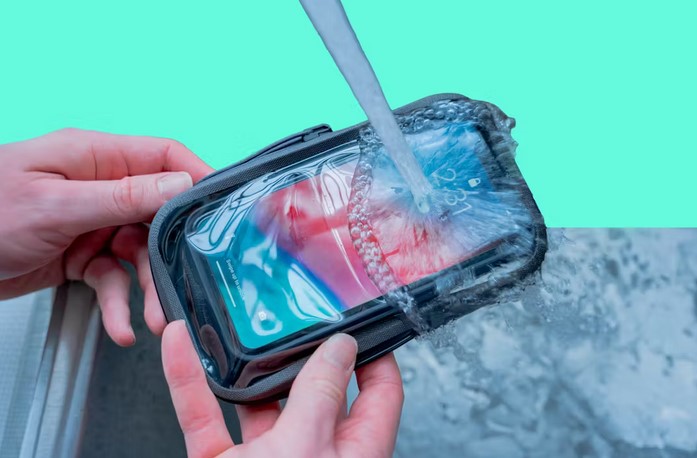
In today’s fast-paced digital environment, businesses are looking for more than just standard cloud storage solutions. With growing data demands and increasing complexity in managing cloud environments, enterprises are turning to multi-cloud storage to meet their needs for scalability, flexibility, and cost efficiency. Multi-cloud storage solutions enable organizations to use multiple cloud services simultaneously, distributing data and workloads across different cloud providers rather than relying on a single provider. This approach offers distinct advantages in terms of performance, risk management, and ensuring that businesses can meet a wide variety of needs without vendor lock-in. In this article, we explore why multi-cloud storage is becoming the go-to solution for enterprises and how it can benefit businesses in today’s data-driven world.
Understanding Multi-Cloud Storage
1. What is Multi-Cloud Storage?
Multi-cloud storage is the practice of using storage services from more than one cloud provider to store and manage data. Instead of relying on a single vendor like AWS, Google Cloud, or Microsoft Azure, businesses can distribute their storage across different platforms, leveraging the unique strengths of each provider. For example, an enterprise might use one provider for scalable object storage, another for high-performance computing, and yet another for backup or disaster recovery solutions.
The multi-cloud approach provides greater flexibility and allows businesses to optimize their storage needs based on different workloads and data types. It enables companies to take advantage of specific features offered by each provider, such as better performance, lower costs, or specific compliance features. The multi-cloud model is particularly beneficial for enterprises that require flexibility in managing both their legacy systems and modern cloud-native applications.
2. Key Benefits of Multi-Cloud Storage
1. Enhanced Flexibility and Performance Optimization
One of the biggest advantages of using multi-cloud storage is the ability to choose the best provider for each specific workload. Different cloud providers specialize in different areas, and businesses can select the optimal provider based on their unique needs. For example, AWS might offer exceptional compute resources, while Google Cloud could excel in big data analytics, and Microsoft Azure might provide better support for legacy enterprise applications.
This flexibility allows businesses to optimize their performance and cost-effectiveness, ensuring that each application or data set is hosted in the most suitable environment. For instance, an e-commerce platform could use a cloud provider with low-latency storage to handle real-time customer transactions, while using a different provider for off-site backups and disaster recovery, reducing costs and improving redundancy.
2. Minimized Risk and Increased Resilience
Relying on a single cloud provider poses a risk to business continuity in the event of service outages or data breaches. Multi-cloud storage mitigates this risk by distributing workloads across multiple providers. If one cloud provider experiences an outage or a security issue, the enterprise’s data can be quickly shifted to another provider without major disruptions. This approach improves business resilience and ensures that critical applications remain available even in the face of unexpected challenges.
Additionally, multi-cloud storage provides better data redundancy. By storing data across multiple cloud providers, businesses can ensure that their data is available from different sources, further reducing the chance of total data loss. This setup is especially important for organizations that rely on mission-critical applications, where downtime could result in significant financial or reputational damage.
3. Cost Efficiency and Avoidance of Vendor Lock-In
Another key benefit of multi-cloud storage is its ability to help businesses avoid vendor lock-in. Instead of committing entirely to one cloud provider, companies can use the most cost-effective options from each provider, ensuring that they pay for the features they need without overpaying for services they don’t use. This approach enables businesses to keep their options open and negotiate better pricing with each provider.
In addition, multi-cloud strategies allow organizations to take advantage of promotions, discounts, or competitive pricing from different providers. This cost flexibility can lead to significant savings in the long term, particularly for businesses with large and growing data storage needs.
Key Considerations When Implementing Multi-Cloud Storage
1. Data Integration and Management Complexity
While multi-cloud storage offers several benefits, it also introduces a layer of complexity when it comes to data integration and management. Managing data across different cloud environments can be challenging, especially when organizations need to ensure data consistency, security, and compliance across platforms. Enterprises must invest in tools and technologies that can integrate multi-cloud storage into their existing infrastructure, enabling seamless data access and synchronization between various platforms.
Many cloud providers offer APIs and integrations that facilitate cross-cloud data transfers, but businesses need to ensure that their multi-cloud setup is well-organized and that they have the right tools in place to manage it effectively. This might include third-party cloud management platforms that offer a single interface for managing storage and workloads across different providers.
2. Security and Compliance
With data stored across multiple cloud environments, security and compliance become critical concerns. Each cloud provider may have different security measures in place, and managing security across these environments can be complex. Organizations must ensure that they have the proper encryption, authentication, and authorization protocols in place to protect data both in transit and at rest.
Additionally, companies in regulated industries such as healthcare, finance, and government must ensure that their multi-cloud strategy complies with industry-specific regulations like HIPAA, GDPR, and PCI-DSS. This often requires coordinating compliance efforts across different cloud providers, which may each have different tools and capabilities for compliance reporting and auditing.
3. Latency and Data Transfer Costs
While multi-cloud storage can optimize performance by choosing the best provider for each workload, it can also introduce challenges related to latency and data transfer costs. Moving large amounts of data between cloud environments can incur additional costs, and data transfers across clouds may introduce latency, particularly if the clouds are located in different geographic regions. Enterprises must carefully consider how they structure their multi-cloud storage architecture to minimize these costs and delays.
To mitigate this issue, businesses can adopt strategies such as keeping data localized within a particular region or ensuring that high-bandwidth applications are housed in the same cloud provider to reduce data transfer times.
Best Practices for Managing Multi-Cloud Storage
1. Develop a Unified Data Strategy
The key to successfully implementing a multi-cloud storage solution is having a unified data strategy. Businesses should create a comprehensive plan that defines where and how data will be stored across different cloud providers. This strategy should include guidelines for data integration, data access, disaster recovery, and backup procedures. A unified data strategy ensures that data remains consistent, secure, and accessible regardless of where it is stored.
2. Use Automation and Management Tools
Managing multiple cloud environments can be time-consuming, but automation and cloud management platforms can simplify the process. These tools help businesses automate tasks like data migration, backup, and scaling, allowing for easier management of multi-cloud environments. Additionally, these platforms often offer monitoring and reporting features, which provide insights into cloud performance, usage, and security across different providers.
3. Ensure Seamless Data Migration
One of the main benefits of multi-cloud storage is the ability to move data freely between providers. However, to take full advantage of this flexibility, businesses must have a solid data migration plan in place. Ensuring seamless data migration involves using the right tools, testing migration processes in advance, and considering factors such as data integrity and downtime during the transition.
In 2026, multi-cloud storage will continue to be a crucial strategy for businesses seeking to maximize flexibility, security, and performance while managing large and diverse datasets. By leveraging multiple cloud providers, enterprises can optimize their storage architecture, reduce the risk of downtime, and ensure compliance with security and regulatory standards. However, businesses must also navigate the complexities of managing data across different cloud environments, ensuring they have the right tools and strategies in place. With proper planning and execution, multi-cloud storage offers significant advantages, making it an essential solution for modern enterprises looking to stay competitive in an increasingly data-driven world.




